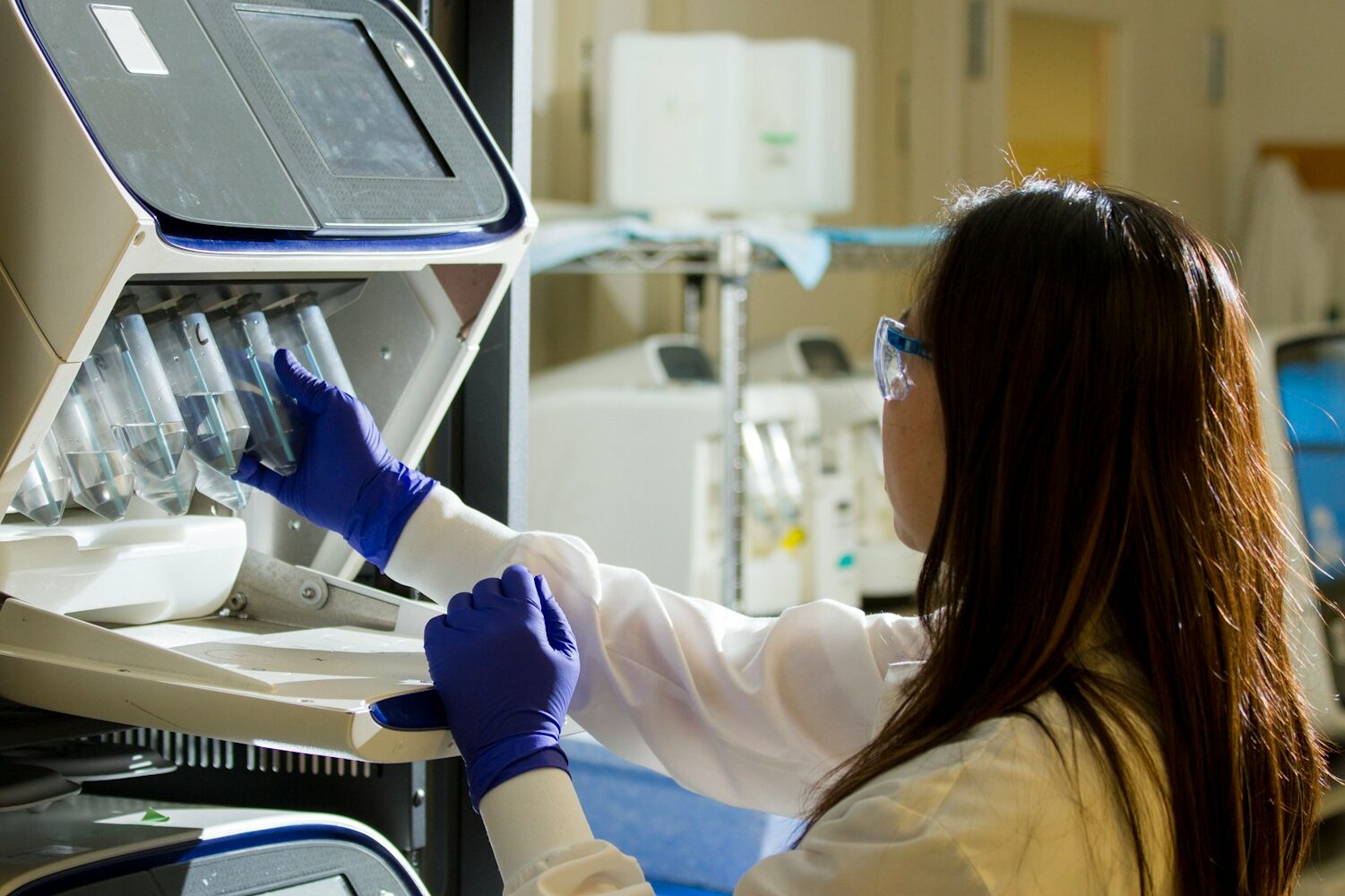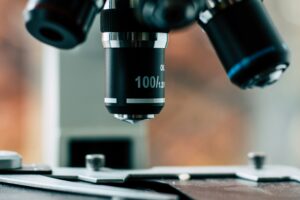
What is the Connection Between Health, HGH Deficiency and Weight Gain?
Human Growth Hormone (HGH) is like the conductor of an orchestra, orchestrating various processes in our bodies to keep everything running smoothly. From childhood through adulthood, HGH plays a crucial role in regulating growth, metabolism, and other essential functions. However, when the delicate balance of HGH production is disrupted, it can have profound effects on our health.
Introduction to HGH and Weight Management
To understand the significance of HGH deficiency, it’s essential to grasp what HGH is and how it functions within the body. Essentially, HGH is a hormone produced by the pituitary gland, a small gland located at the base of the brain. During childhood and adolescence, HGH is primarily responsible for stimulating growth, helping children achieve their full height potential. But its influence doesn’t stop there. Even after growth stops, HGH continues to play a vital role in maintaining healthy body composition, metabolism, and overall well-being.
Production of HGH
The production of HGH follows a natural rhythm, with levels peaking during adolescence and gradually declining as we age. However, various factors can disrupt this delicate balance, leading to HGH deficiency. Age-related decline is one common cause, but other factors, such as certain medical conditions or lifestyle choices, can also impact HGH production.
Consequences of HGH deficiency
The consequences of HGH deficiency can be far-reaching, affecting not only physical growth but also metabolism, muscle mass, and overall health. Understanding the connection between underlying health issues and HGH deficiency is crucial to improve hormonal balance and prevent weight gain.
By exploring how various health conditions affect HGH levels and how addressing these issues can help optimize hormone levels and promote better health, we aim to provide insights that empower readers to take control of their well-being.
Understanding HGH Deficiency
Human Growth Hormone (HGH) deficiency occurs when the pituitary gland fails to produce an adequate amount of this crucial hormone. To understand the implications of HGH deficiency, it’s essential to grasp the multifaceted role that HGH plays in the body’s functioning.
Role of HGH
HGH is often referred to as the “master hormone” because of its diverse effects on growth, metabolism, and cellular repair. During childhood and adolescence, HGH stimulates the growth of bones, cartilage, and muscles, enabling children to achieve their full height potential. However, its influence extends beyond growth. HGH also plays a pivotal role in regulating metabolism, promoting the breakdown of fats and the synthesis of proteins. This metabolic activity helps maintain a healthy body composition, with optimal levels of lean muscle mass and minimal fat storage.
The secretion of HGH follows a pulsatile pattern, with the highest levels typically occurring during deep sleep and in response to physical activity or stress. This natural rhythm is orchestrated by the hypothalamus, which releases growth hormone-releasing hormone (GHRH) to stimulate HGH production and somatostatin to inhibit its release. Disruptions to this delicate balance can lead to HGH deficiency, which can manifest in various ways depending on the age of onset and severity of the deficiency.
HGH deficiency
In children, HGH deficiency may result in delayed growth and short stature, as well as other symptoms such as delayed puberty, decreased muscle strength, and increased fat accumulation. In adults, HGH deficiency can lead to a range of health issues, including decreased bone density, reduced muscle mass, impaired cognitive function, and altered lipid metabolism.
Several factors can contribute to HGH deficiency, including congenital conditions affecting the pituitary gland, such as pituitary tumors or genetic abnormalities. Additionally, acquired conditions such as trauma, infection, or radiation therapy can damage the pituitary gland and disrupt HGH production. Lifestyle factors, such as poor sleep quality, excessive stress, and inadequate nutrition, can also influence HGH levels.
Impact of Health Issues on HGH Levels
The delicate balance of Human Growth Hormone (HGH) production can be easily disrupted by various health issues and disorders. Understanding how these conditions affect HGH levels is crucial for recognizing the underlying mechanisms contributing to HGH deficiency.
- One significant health issue that can disrupt HGH production is obesity. Research has shown that obesity is associated with lower circulating levels of HGH, as well as reduced responsiveness to HGH stimulation. The exact mechanisms underlying this association are complex and multifaceted. Adipose tissue, or body fat, produces hormones and signaling molecules known as adipokines, which can interfere with the secretion and action of HGH. Additionally, insulin resistance, which is common in obesity, may impair the ability of HGH to exert its metabolic effects, further exacerbating the problem.
- Another common health issue linked to HGH deficiency is pituitary gland disorders. The pituitary gland plays a central role in regulating HGH production, so any disruption to its function can have profound effects on hormone levels. Pituitary tumors, for example, can interfere with the normal production and release of HGH, leading to deficiency. Similarly, damage to the pituitary gland caused by trauma, infection, or radiation therapy can impair its ability to produce HGH, resulting in deficiency symptoms.
- Chronic illnesses and medical conditions can also impact HGH levels. For example, individuals with chronic kidney disease often exhibit reduced HGH secretion, which may contribute to growth failure and muscle wasting. Similarly, inflammatory conditions such as rheumatoid arthritis or inflammatory bowel disease can disrupt the normal regulation of HGH production, leading to deficiency symptoms.
- Additionally, lifestyle factors such as poor sleep quality, excessive stress, and inadequate nutrition can negatively impact HGH levels. Sleep deprivation, for example, has been shown to suppress HGH secretion, particularly during the deep, slow-wave stages of sleep. Similarly, chronic stress can dysregulate the hypothalamic-pituitary-adrenal (HPA) axis, which may indirectly affect HGH production. And nutritional deficiencies, particularly in essential amino acids, can impair the body’s ability to synthesize and release HGH.
By understanding how various health issues affect HGH levels, we can begin to appreciate the intricate relationship between health and hormonal balance.
The Relationship Between HGH Deficiency and Weight Gain
The connection between Human Growth Hormone (HGH) deficiency and weight gain is a complex interplay of metabolic processes that can have profound implications for overall health. Understanding how HGH deficiency contributes to weight gain requires a closer look at the role of HGH in regulating metabolism, fat distribution, and muscle mass.
- One of the primary ways in which HGH deficiency can lead to weight gain is through its effects on metabolism. HGH plays a crucial role in promoting lipolysis, the breakdown of fats, and inhibiting lipogenesis, the synthesis of fats. When HGH levels are inadequate, the body may become less efficient at burning fat for energy, leading to an accumulation of adipose tissue and ultimately weight gain.
- Furthermore, HGH deficiency can also affect fat distribution, leading to changes in body composition. Individuals with HGH deficiency may experience increased visceral adiposity, or fat deposition around the abdomen, which is associated with a higher risk of metabolic disorders such as insulin resistance and cardiovascular disease. This redistribution of fat can contribute to a higher body mass index (BMI) and an increased risk of obesity-related health complications.
- In addition to its effects on fat metabolism, HGH deficiency can also impact muscle mass. HGH plays a critical role in promoting protein synthesis and muscle growth, so inadequate levels of HGH can lead to muscle wasting and reduced muscle strength. This loss of lean muscle mass can further exacerbate weight gain, as muscle tissue is metabolically active and contributes to overall energy expenditure.
It’s important to note that weight gain associated with HGH deficiency is not solely due to increased fat accumulation. Rather, it reflects a complex interplay of metabolic dysregulation, altered fat distribution, and muscle wasting that collectively contribute to changes in body composition and weight.
Addressing Health Issues to Improve HGH Levels and Combat Weight Gain
Addressing Human Growth Hormone (HGH) deficiency and its associated weight gain requires a multifaceted approach that targets underlying health issues and promotes optimal hormone balance. By addressing the root causes of HGH deficiency, individuals can optimize their hormone levels and achieve better metabolic health.
- One crucial aspect of addressing HGH deficiency is managing underlying health conditions that may contribute to hormone dysregulation. For example, individuals with obesity can benefit from lifestyle modifications such as regular exercise and a balanced diet to promote weight loss and improve metabolic health. By reducing excess body fat and improving insulin sensitivity, individuals can enhance their body’s responsiveness to HGH and potentially restore normal hormone levels.
- Similarly, individuals with pituitary gland disorders may require medical interventions such as hormone replacement therapy or surgical treatment to address the underlying cause of HGH deficiency. By restoring normal pituitary function, these interventions can help normalize hormone levels and alleviate symptoms associated with HGH deficiency.
- In addition to managing underlying health conditions, lifestyle factors such as sleep quality, stress management, and nutrition play a crucial role in optimizing HGH levels. Adequate sleep is essential for the natural secretion of HGH, as HGH levels peak during deep, slow-wave sleep. By prioritizing good sleep hygiene practices such as maintaining a regular sleep schedule and creating a restful sleep environment, individuals can support healthy hormone production.
- Similarly, stress management techniques such as mindfulness meditation, yoga, and deep breathing exercises can help regulate the hypothalamic-pituitary-adrenal (HPA) axis and promote optimal HGH secretion. Additionally, ensuring adequate nutrition, particularly protein-rich foods that provide essential amino acids necessary for HGH synthesis, can support healthy hormone levels.
In some cases, individuals with severe HGH deficiency may require medical interventions such as recombinant HGH therapy to supplement inadequate hormone levels. This treatment involves the administration of synthetic HGH injections to mimic the body’s natural hormone production and alleviate symptoms associated with deficiency.
Overall, addressing HGH deficiency and its associated weight gain requires a comprehensive approach that addresses underlying health issues, promotes healthy lifestyle habits, and may involve medical interventions when necessary. By optimizing hormone balance and supporting metabolic health, individuals can improve their overall well-being and achieve a healthier weight.
Conclusion: Underlying Health Conditions and Their Impact on HGH Deficiency
In conclusion, the connection between health and Human Growth Hormone (HGH) deficiency underscores the importance of addressing underlying health issues to promote optimal hormone balance and overall well-being. HGH deficiency can have profound effects on metabolism, fat distribution, and muscle mass, leading to weight gain and other health complications.
By understanding the factors that contribute to HGH deficiency, individuals can take proactive steps to address these issues and optimize hormone levels.
- Lifestyle modifications such as regular exercise, a balanced diet, and adequate sleep can support healthy hormone production and promote metabolic health.
- Additionally, managing underlying health conditions such as pituitary gland disorders may require medical interventions to restore normal hormone levels.
It’s important for individuals to prioritize their health and seek professional medical advice if they suspect they may have HGH deficiency or related health issues. With the guidance of healthcare professionals, individuals can develop personalized treatment plans tailored to their specific needs and goals.
Ultimately, addressing HGH deficiency is not just about treating the symptoms of weight gain; it’s about promoting overall health and well-being. By optimizing hormone balance and supporting metabolic health, individuals can improve their quality of life and reduce their risk of obesity-related health complications.
It’s clear that a holistic approach to wellness is essential for achieving and maintaining optimal health. By addressing underlying health issues, optimizing hormone balance, and adopting healthy lifestyle habits, individuals can move toward better health and vitality.



